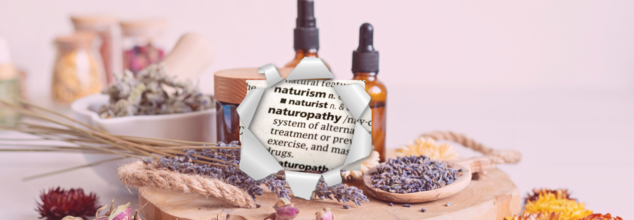- Health Conditions A-Z
- Health & Wellness
- Nutrition
- Fitness
- Health News
- Ayurveda
- Videos
- Medicine A-Z
- Parenting
- Web Stories

Menopause (Credit: Canva)
Flooding, Anxiety, and Hot Flashes: Key Facts Every Menopausal Woman Should Know
Menopause affects every woman in this world and yet, there is little awareness about its symptoms and effects. Moreover, there is much misinformation about perimenopause, which is the transitional phase leading up to menopause. A survey conducted in 2021, that included over 800 postmenopausal participants in the UK found that over 90% of them never learnt anything in school about menopause. When asked how they experienced menopause, many replied that it was a "nightmare."
What Is Menopause?
Health experts describe menopause as the stage of a woman’s life when her menstrual periods stop permanently, and she can no longer get pregnant. For many women, it is a time of relief as they no longer have to worry about constant bleeding or getting pregnant. However, for many others, it could result in period of symptoms like hot flashes, night sweats, trouble sleeping, joint and muscle discomfort, pain during sex, moodiness and irritability, forgetfulness, difficultly concentrating, or a combination of these. Women who are concerned by menopausal symptoms should talk with a doctor about lifestyle changes or medications that might help.Here Are Things That All Menopausal Women Should Know
Menopause is a life stage that affects women differently. The symptoms range from vaginal dryness and discomfort to various more serious symptoms. Many women experience perimenopause in their 40s, even before they discover that their menstrual cycle has changed. During this time, fluctuating estrogen levels can lead to hot flashes, insomnia, and anxiety. All these changes can occur as the body prepares for menopause, where follicles gradually decrease in number, signaling the end of reproductive years.Many women may experience symptoms like vaginal dryness and atrophy may appear unexpectedly and disrupt everyday activities, such as biking or exercise.
It also has a significant impact on a women's mental health as anxiety and depression can arise due to hormonal shifts. It’s important for women to recognize that symptoms can vary significantly—some may find that hormonal contraception, while suppressing periods, can mimic or mask perimenopausal symptoms like dryness and libido changes.
Another lesser-known symptom of perimenopause is the experience of flooding, where periods become heavier than usual. This can lead to sudden, intense periods, sometimes leading to unexpected accidents, such as staining clothing. In addition, sleep disruptions, including night sweats, further affect mood and daily functionality. Though often dismissed, hot flashes and night sweats are debilitating for many, especially when they disrupt sleep patterns.
In some cases, perimenopause can lead to conditions like ADHD. For women experiencing significant mood changes or depressive symptoms, hormonal treatments are recommended. Many women opt for Hormone Replacement Therapy to counter the effects of menopause.

Creidt: Canva
This Commonly Used Pill Can Boost Cancer Survival By 61%, Research Finds
There are millions of people who carry anti-cholesterol pills in their pockets. Official records state that eight million people consume statins to lower their risk of heart and circulatory diseases. Now, new research suggests that they do more than just benefiting your heart, they also mitigate the risk of cancer.
Recently, a study was conducted on blood cancer patients who were taking these pills at the start of their treatment. It was found that 61% per cent of them had a lower risk of cancer as compared to those not taking statins.
Here's The Research Explained
The research involved 1,467 patients with chronic lymphocytic leukaemia (a type of blood and bone marrow cancer) or small lymphocytic lymphoma, with an average age of 65. Patients were enrolled in one of four trials looking at the effects of a targeted cancer drug called ibrutinib.
The dose of statin was adjusted according to varied factors like age, gender, among others. Regardless of those factors, patients taking statins were found to have a 61% lower risk of dying from their cancer, a 38% lower risk of dying from any cause, and a 26% lower risk of their disease progressing.
But What Is Statin?
Statins are a class of medications primarily used to lower cholesterol levels in the blood. They work by blocking the enzyme HMG-Coa reductase, which is crucial for the liver's production of cholesterol. By reducing cholesterol production, statins help lower the risk of heart disease and stroke.Cancer Is The Leading Cause Of Death In The World
Cancer is the leading cause of death across the world. According to the World Health Organisation (WHO), it killed 10 Million people in 2020, with breast and lung cancer. and which can then invade adjoining parts of the body and spread to other organs; the latter process is referred to as metastasis. Widespread metastases are the primary cause of death from cancer.
The study was led by Dr Ahmad Abuhelwa, an assistant professor of pharmacy practice and pharmacotherapeutics at the University of Sharjah in the United Arab Emirates. Talking about the research, he said, "These findings don’t allow us to say for certain that statins directly improve cancer outcomes."

Credits: Canva
Why More People Are Anxious About Flying—And What You Can Do About It
There has been a recent increase in aviation-related headlines and tragic incidents that has triggered renewed anxiety about air travel. This has happened to even those who have previously felt at ease about boarding a flight. Statistics have continued to show that flying is one of the safest ways to travel, whoever, the number of people who have been affected by the fear of flying, or aerophobia has only grown.
This is based on the reports from psychologists, airport staff, and airline crew suggested a noticeable uptick in passengers expressing nervousness about flying. This trend is not just limited to those who have a long-standing fear of air travel. This has now been affecting to even those who were not concerned about it before. This may be due to the increasing media coverage, heightened safety concerns, and ongoing stress from broader life circumstances.
The recent data from the industry reflects a decline in air travel during early spring. While some airlines have suggested economic uncertainty and reduced government travels, the evidence suggest that there have been concerns over safety and psychological toll on recent aviation events, which has led to the decline in numbers.
Flight crews, especially those based near recent accident locations, have also felt the impact. Some crew members have taken time off to cope emotionally, and in a few cases, even left the profession due to increased stress.
What Is Aerophobia?
As per Trauma Research UK, aerophobia is an irrational fear or anxiety related to flying or being in aeroplanes. It is a type of specific phobia, which is an excessive or irrational fear of a particular object, situation, or activity. People with aerophobia may also experience intense anxiety, panic attacks, or avoidance behaviour when faced with situations involving air travel, such as boarding a plane, visiting an airport or even just thinking about flying.
How Does It Start?
It usually starts like how all other phobias start, from a 'learned behaviour'.
Bad Experience: A bad experience can be anything from experiencing turbulence, experiencing some form of trauma whilst abroad, seeing a frightening film as a child or feeling unwell on a plane
Copying A Parent: A lot of behaviour that we often do comes from looking at our parents If as a child, you have witnessed a grown up, who is supposed to be your protector, be scared of flights. Chances are, you will be scared too.
Becoming A Parent: Your parental protection instincts have kicked in and this fear may accelerate and become a phobia.
Transference: This often occurs when facing a stressful event whilst on holiday. As you are sitting on the plane homeward bound, the suppressed anxiety and stress catch up with you, causing an anxiety attack.
Psychologists also suggest that as individuals take on more responsibilities—like starting families or advancing in careers—their sense of vulnerability can increase, sparking fears that didn’t exist before.
Traumatic flight experiences, such as severe turbulence, can also act as a trigger. In some cases, broader anxiety disorders—such as social or travel-related stress—intersect with aerophobia, compounding the fear.
What Are The Symptoms?
For some, the fear of flying can lead to full-blown panic attacks. These may involve shortness of breath, dizziness, nausea, or a sense of being trapped. Airline crew members often assist passengers experiencing panic, sometimes administering oxygen or offering calming support during the flight.
How Can You Cope?
Deep breathing: Practicing longer exhales helps activate the body’s relaxation response.
Exposure therapy: This can involve gradually facing flight-related triggers—starting with looking at plane photos, watching flight videos, or using virtual reality simulations.
Mindfulness and acceptance: Learning to tolerate uncomfortable feelings rather than fight them can make anxiety more manageable.
Journaling symptoms: Some therapists recommend keeping a count of anxious moments to foster acceptance and track progress.

Credits: Canva
What Role Does Naturopathy Play In General Healing?
As times are changing, all of us are going back to traditional approaches, whether it is Ayurveda, Homoeopathy or Naturopathy. These are alternative medicines and are useful in treating many diseases, especially through lifestyle changes. Most of these alternative medicines focus on preventive care. Today, we try to find out what one might be in for when they choose Naturopathy as a way of healing. What does it do? How does it differ from Ayurveda? How can it complement the regular day-to-day modern medicines?
For this, the Health and Me team spoke to Dr Prashanth Shetty, Principal at SDM College of Naturopathy and Yogic Science, Ujire.
What Is Naturopathy?
As the doctor explains, Naturopathy is a holistic approach to medicine that believes in the body’s innate ability to heal itself. It focuses on the root cause of illnesses, not just symptoms, and promotes natural healing through diet, lifestyle modifications, herbal remedies, hydrotherapy, and physical therapy.
"Naturopathy emphasizes natural healing, disease prevention, and lifestyle modification, aiming to restore balance and promote long-term wellness,” says Dr Shetty.
Unlike allopathic medicine, which often relies on pharmaceuticals and surgeries to treat disease symptoms, naturopathy works by supporting the body’s self-healing process.
How Does Naturopathy Complement Modern Medicine?
Naturopathy is increasingly being integrated with modern medical practices. It works well as a complementary therapy, especially in managing chronic conditions. For instance, naturopathic therapies such as acupuncture and nutrition counselling can reduce side effects of medications or improve treatment outcomes.
Patients undergoing treatment for diabetes, hypertension, arthritis, or even cancer may benefit from a combined approach—using conventional medications alongside naturopathic suggestions on diet, exercise, and stress reduction. This not only reduces dependency on medication but also empowers patients to actively participate in their healing journey.
Can It Help With Chronic Conditions?
Dr Shetty points out instances where Naturopathy has helped patients who have been battling with chronic diseases:
Diabetes: Naturopathic approaches like dietary changes, herbal supplements, and stress management can complement conventional treatments.
Hypertension: Lifestyle modifications, such as diet, exercise, and stress reduction, can be used alongside medication to manage blood pressure.
Arthritis: Naturopathic treatments like acupuncture, herbal remedies, and physical therapy can help manage pain and inflammation.
Mental Health
Anxiety and Depression: Naturopathic approaches like mindfulness, meditation, and herbal supplements can be used alongside conventional treatments.
Stress Management: Naturopathic techniques like yoga, deep breathing, and relaxation can help manage stress.
Digestive Health
Irritable Bowel Syndrome (IBS): Naturopathic approaches like dietary changes, probiotics, and stress management can help manage symptoms.
Inflammatory Bowel Disease (IBD): Naturopathic treatments like dietary modifications, herbal supplements, and stress reduction can complement conventional treatments.
Women's Health
Menstrual Disorders: Naturopathic approaches like herbal supplements, dietary changes, and stress management can help regulate menstrual cycles.
Menopause: Naturopathic treatments like herbal supplements, dietary changes, and lifestyle modifications can help manage symptoms.
Naturopathy vs Ayurveda: Are They the Same?
Though both systems promote natural healing, they are fundamentally different. “Naturopathy and Ayurveda are not the same—they are distinct systems of natural medicine with different foundations and limitations,” says Dr Shetty.
Naturopathy is grounded in the belief of self-healing through nature, whereas Ayurveda is rooted in the concept of balancing the body's three doshas—Vata, Pitta, and Kapha. Naturopathy commonly uses diet, hydrotherapy, and herbal medicines, while Ayurveda may include massages, herbal formulations, and treatments based on dosha types.
Additionally, naturopathic education is often structured and formalized, while Ayurvedic learning can also be passed down traditionally through apprenticeships.
While both the systems do share certain similarities—like emphasizing prevention, detoxification, and the use of herbal remedies; they follow a different framework and diagnostic methods. Naturopathy focuses more on individual's lifestyle and the environmental factors, whereas Ayurveda relies more on the ancient texts and doshic assessments, points out the doctor.
Personalized and Preventive
What makes naturopathy stand out is that it is personalized in nature and is based on each individual's lifestyle, their dietary habits, what suits them and what does not and their stress levels. It also evaluates emotional well-being, as well as the environment that may be the cause of their diseases or disorders.
At the core of naturopathy is prevention. It focuses more on preventing a disease even before the symptoms show up. By encouraging early lifestyle interventions, regular detoxification, and stress management, naturopathy helps reduce disease incidence, hospital visits, and the long-term burden on healthcare systems.
Reducing Healthcare Burden
There is an overgrowing burden on the healthcare system. While it is not to say that this must not be changed however, with alternative medicines like naturopathy, which emphasizes on preventive care, it can help lessen the burden. Naturopathy also focuses on educating individuals to take control of their health. The approaches used are: balanced nutrition, exercise, and mindfulness. As Dr Shetty notes, this not only empowers patients but also reduces the reliance on medication and minimizes hospital visits—ultimately easing the strain on healthcare infrastructure.
© 2024 Bennett, Coleman & Company Limited

